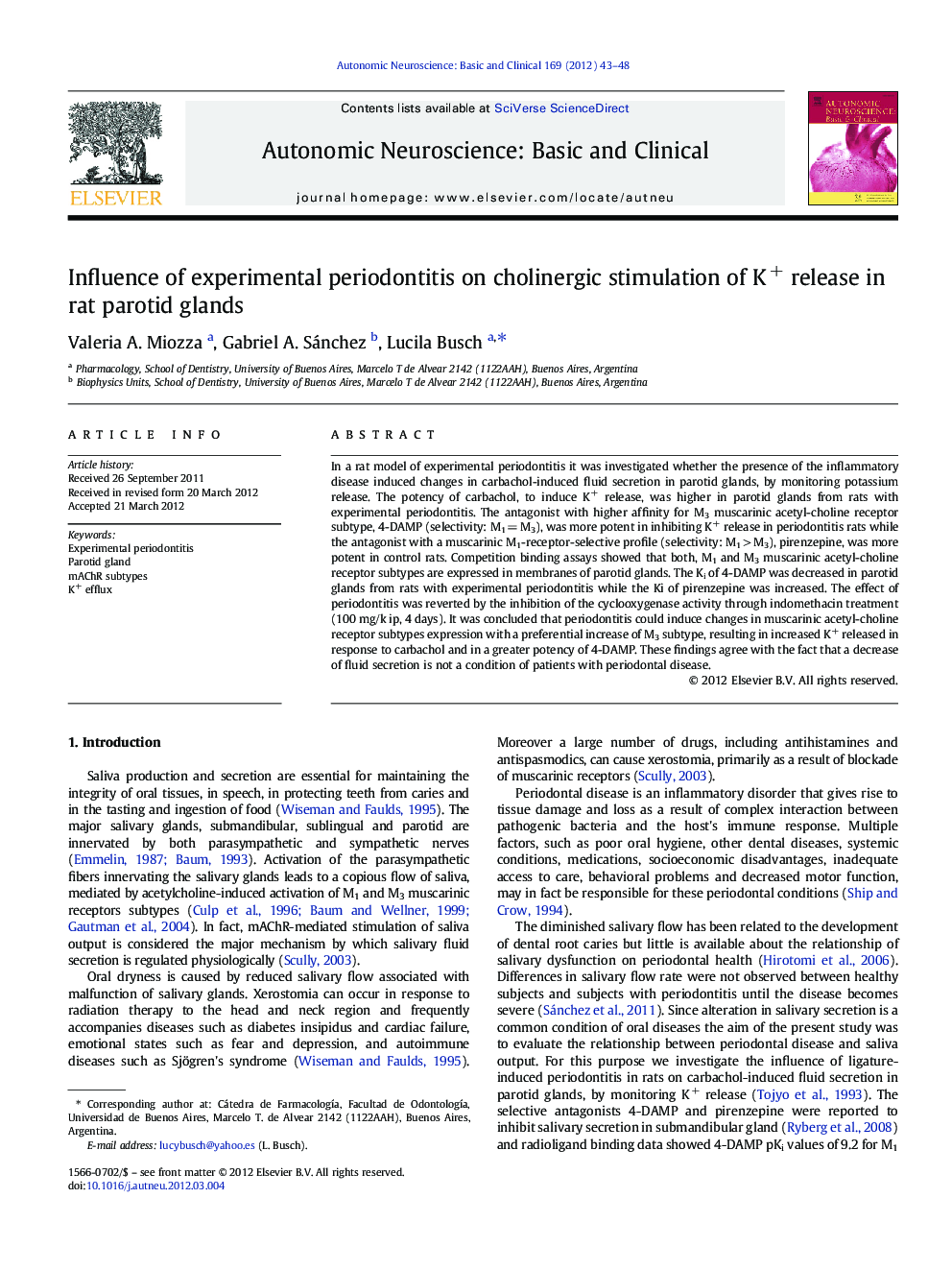| کد مقاله | کد نشریه | سال انتشار | مقاله انگلیسی | نسخه تمام متن |
|---|---|---|---|---|
| 3034982 | 1184243 | 2012 | 6 صفحه PDF | دانلود رایگان |

In a rat model of experimental periodontitis it was investigated whether the presence of the inflammatory disease induced changes in carbachol-induced fluid secretion in parotid glands, by monitoring potassium release. The potency of carbachol, to induce K+ release, was higher in parotid glands from rats with experimental periodontitis. The antagonist with higher affinity for M3 muscarinic acetyl-choline receptor subtype, 4-DAMP (selectivity: M1 = M3), was more potent in inhibiting K+ release in periodontitis rats while the antagonist with a muscarinic M1-receptor-selective profile (selectivity: M1 > M3), pirenzepine, was more potent in control rats. Competition binding assays showed that both, M1 and M3 muscarinic acetyl-choline receptor subtypes are expressed in membranes of parotid glands. The Ki of 4-DAMP was decreased in parotid glands from rats with experimental periodontitis while the Ki of pirenzepine was increased. The effect of periodontitis was reverted by the inhibition of the cyclooxygenase activity through indomethacin treatment (100 mg/k ip, 4 days). It was concluded that periodontitis could induce changes in muscarinic acetyl-choline receptor subtypes expression with a preferential increase of M3 subtype, resulting in increased K+ released in response to carbachol and in a greater potency of 4-DAMP. These findings agree with the fact that a decrease of fluid secretion is not a condition of patients with periodontal disease.
Journal: Autonomic Neuroscience - Volume 169, Issue 1, 2 July 2012, Pages 43–48